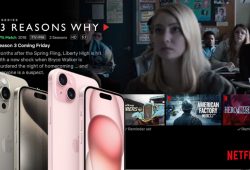Corey duBrowa, Global CEO of Burson, shared his vision on the role of communication in building brand reputation, the strategic role of agencies, the integration of artificial intelligence, and his personal journey that led him to head one of the world’s most influential communications firms, during a recent episode of Merca2.0’s podcast.
DuBrowa began by reflecting on a common but mistaken notion: that reputation is solely based on trust. For him, the concept is far more complex and powerful. “For a long time, it was believed that reputation was a single dimension based on trust, but in reality, it is the attribute that can provide a true competitive advantage to companies, especially in fast-moving industries like technology,” he noted.
His experience at iconic brands such as Nike, Starbucks, Salesforce, and Google gave him a clear perspective on what clients expect from an agency: a shift from tactical to strategic thinking. “I was a client for 15 years. Some agencies were merely operational, but others became true strategic partners. When I took on the leadership of BCW, and later Burson following the merger with Hill+Knowlton, my goal was to build a firm that helps solve big business challenges through communication,” he said.
DuBrowa also recalled his time in Latin America during his tenure at Nike, where he led the transition to regain direct control of the brand in the region. He traveled through countries like Brazil, Mexico, Chile, Peru, and Argentina, strengthening the brand’s presence and setting up strategic offices, such as the sports marketing division in Rio de Janeiro. “It was a fascinating and challenging time, but highly formative.”
Regarding the present and future of Burson, he explained that although he took on the role in 2023, the real consolidation of the project began in 2024 with the merger of the two agencies.
One of the most personal moments of the interview came when he recalled his meeting with Harold Burson, the firm’s founder, who shared an idea that has since become his mantra: communicators only have a license to communicate after the company has taken the right actions. “Action comes first, then communication,” said duBrowa. He assured that this ethical and strategic vision is the foundation of what Burson represents today.
Finally, he addressed the challenges brands face in an environment increasingly pressured by immediate financial results. This pressure leads to urgent fixes rather than sustained strategies. “As agencies, our challenge is to return long-term vision to brands without losing short-term effectiveness,” he concluded.
As highlighted in a study by consultancy firm KPMG, 73% of business leaders consider poor reputation management to be one of the main risks to business growth over the next three years.
Moreover, according to data from the Edelman Trust Barometer, 71% of global consumers expect companies to take a clear stance on social and environmental issues. Meanwhile, 63% of employees say they would choose to work for a company with a solid reputation, even if it meant lower financial compensation.
Podcast: Reputation is not just trust
Now read:
Podcast: ¿Y si dijéramos las cosas como son?
Podcast: La IA está redefiniendo el marketing
Podcast: Se trata de educar a tu audiencia









